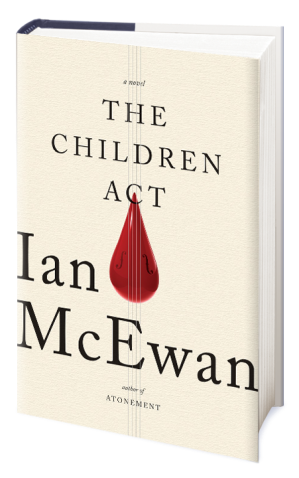
It is often remarked that Sherlock Holmes is the most portrayed movie character in the history of cinema. One might question the validity of another movie about him and yet none have been so person as Mr. Holmes staring Ian McKellen. He plays the famed detective in the twilight of his life, memory is failing and one last case that must be solved; a case that may just be the most important of his life, enough to alter his future.
Missing the Point
Holmes is the original Spock. He is cold emotion and facts wrapped in a smoking jacket. He’s able to deduce the most minute detail about a person, observe what others cannot see and crack cases no other could. Yet, with all this knowledge and logical deduction there is something that is missing, wisdom and heart. Spock says to Valaris in Star Trek VI that logic is only the beginning of wisdom. Holmes becomes acutely aware of this in the most dreadful way. A husband of a distraught wife comes to Holmes, pleading with him to figure out what is wrong with her. Holmes quickly deduces the woman’s case, finding that she is overcome by the loss of two children from miscarriages. What she wants is to spend time with Holmes. She senses that he’s lived a solitary life and is seldom understood. She desires to just spend time with him to ease her loneliness. Holmes, unable to see past his logic to the emotion to the heart of her despair sends her home to her husband, only to find out the next day that she’s committed suicide.
 Know and Loved
Know and Loved
Holmes begins to understand the depth of his mistake and the loneliness that he’s felt his whole life. Even Watson never really knew him. Watson had chronicled the life of a character he’d created, not the man he never really knew. Watson thinks he knows Holmes, yet Holmes is jut playing the fiction that’s been created around him. He personifies the expectations fiction has placed on him, never truly able to reveal himself for fear of alienating readers, fans and in the end friends. Holmes lacks the courage to be himself as well as the safety of a true friendship with which to do so.
After the incident, Holmes retires to the country in exile. It is there that he meets his redemption in Roger, his cook’s son. Roger is smart, like Holmes he has a sharp mind and a quick wit. His father was lost in WWII and he’s grown up with only vague memories of him from his mother’s stories. He and Holmes strike an unlikely friendship over the care of bees. Together they become the person that knows the other like no one else can. We’ve all experienced it, knowing that certain someone who gets you in ways others just can’t. It feels as though you’re more complete because finally you’re understood to the core of your being. Holmes finds that missing piece of himself in the most unlikely of places and it changes him forever.
 The beautiful thing is that Roger is changed as well. For him, Holmes is the father he never had. Holmes is able to stimulate Roger intellectually and spur him on to a life he’d never have if not for the way he’s known by Holmes. The film beautifully reminds us that cloistering ourselves away hurts not only ourselves but others. It’s when we risk and interact with those around us that true life happens. There are many Proverbs about the importance of friendship yet one stands out as relevant to the film, “As iron sharpens iron, so one man sharpens another.” Solomon’s words in Ecclesiastes echo just as loudly when he says,
The beautiful thing is that Roger is changed as well. For him, Holmes is the father he never had. Holmes is able to stimulate Roger intellectually and spur him on to a life he’d never have if not for the way he’s known by Holmes. The film beautifully reminds us that cloistering ourselves away hurts not only ourselves but others. It’s when we risk and interact with those around us that true life happens. There are many Proverbs about the importance of friendship yet one stands out as relevant to the film, “As iron sharpens iron, so one man sharpens another.” Solomon’s words in Ecclesiastes echo just as loudly when he says,
Two are better than one, because they have a good reward for their toil. For if they fall, one will lift up his fellow. But woe to him who is alone when he falls and has not another to lift him up! Again, if two lie together, they keep warm, but how can one keep warm alone? And though a man might prevail against one who is alone, two will withstand him—a threefold cord is not quickly broken.
We are strongest when we are not only together, but know fully, deeply and intimately.
Conclusion
Mr. Holmes is the perfect antidote to superheroes, explosions and dinosaurs. None of these have been bad things, but Mr. Holmes stands above these with it’s reminders of the importance of community and truly knowing those around us and allowing ourselves to be known. Go see Mr. Holmes and revel in the quiet mystery of a film doing what the medium does at it’s best, teaching us through a good story and good characters.



 “The Church’s answer is categorical and uncompromising, and it is this: that Jesus Bar-Joseph, the carpenter of Nazareth, was in fact and in truth, and in the most exact and literal sense of the words, the God “by whom all things were made.” His body and brain were those of a common man; his personality was the personality of God, so far as that personality could be expressed in human terms. He was not a kind of demon pretending to be human; he was in every respect a genuine living man. He was not merely a man so good as to be “like God”— he was God.
“The Church’s answer is categorical and uncompromising, and it is this: that Jesus Bar-Joseph, the carpenter of Nazareth, was in fact and in truth, and in the most exact and literal sense of the words, the God “by whom all things were made.” His body and brain were those of a common man; his personality was the personality of God, so far as that personality could be expressed in human terms. He was not a kind of demon pretending to be human; he was in every respect a genuine living man. He was not merely a man so good as to be “like God”— he was God.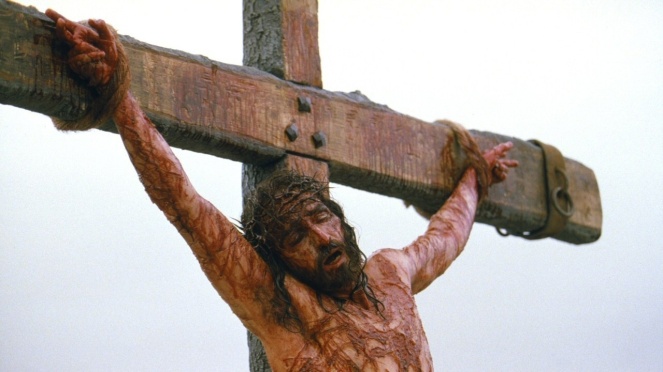
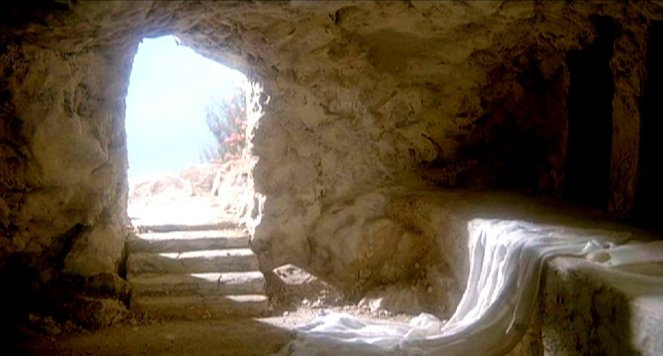

 It’s a show that has touched my heart and proved that Americans still have an affinity for family values, morality and doing the right thing even when it’s hard.
It’s a show that has touched my heart and proved that Americans still have an affinity for family values, morality and doing the right thing even when it’s hard.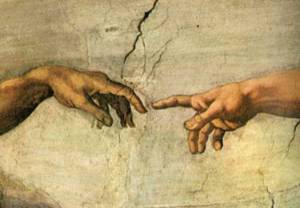 R. C. Sproul, who drafted the original Chicago Statement of Biblical Inerrancy, once said, “When people ask me how old the earth is, I tell them I don’t know—because I don’t.”
R. C. Sproul, who drafted the original Chicago Statement of Biblical Inerrancy, once said, “When people ask me how old the earth is, I tell them I don’t know—because I don’t.”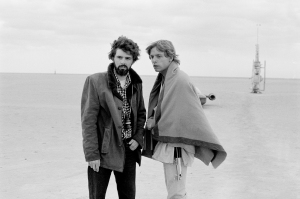 George Lucas
George Lucas ‘American Sniper’ exemplifies a new kind of war film: The professional proceduralThere’s no doubt that “American Sniper” is a big hit with the red-state constituencies from which Kyle and many of his fellow service members hail. But the movie — a well-acted, absorbing portrait of Kyle in action during the Iraq war and coping with trauma and dislocation when he returns home — has been a hit with viewers of all philosophical stripes. It may be the first — and last — movie to earn Twitter love from Sarah Palin and Jane Fonda.
‘American Sniper’ exemplifies a new kind of war film: The professional proceduralThere’s no doubt that “American Sniper” is a big hit with the red-state constituencies from which Kyle and many of his fellow service members hail. But the movie — a well-acted, absorbing portrait of Kyle in action during the Iraq war and coping with trauma and dislocation when he returns home — has been a hit with viewers of all philosophical stripes. It may be the first — and last — movie to earn Twitter love from Sarah Palin and Jane Fonda. Billy Joel is the closest thing Madison Square Garden has to a sure thing — certainly more than the Knicks or the Rangers or the Liberty. It’s been 21 years since Joel released a new pop album, yet he sold out the arena 12 times in 2014 alone, and he’ll play his second (also sold-out) show of 2015 tonight. He has established a standing residency there, like a guy who plays a monthly nightclub gig, except that the club happens to seat 18,000.
Billy Joel is the closest thing Madison Square Garden has to a sure thing — certainly more than the Knicks or the Rangers or the Liberty. It’s been 21 years since Joel released a new pop album, yet he sold out the arena 12 times in 2014 alone, and he’ll play his second (also sold-out) show of 2015 tonight. He has established a standing residency there, like a guy who plays a monthly nightclub gig, except that the club happens to seat 18,000. There’s something you missed.
There’s something you missed. For years I’ve pondered a cultural and social paradox that diminishes the vitality and diversity of the American arts. This cultural conundrum also reveals the intellectual retreat and creative inertia of American religious life. Stated simply, the paradox is that, although Roman Catholicism constitutes the largest religious and cultural group in the United States, Catholicism currently enjoys almost no positive presence in the American fine arts—not in literature, music, sculpture, or painting. This situation not only represents a demographic paradox. It also marks a major historical change—an impoverishment, indeed even a disfigurement—for Catholicism, which has for two millennia played a hugely formative and inspirational role in the arts.
For years I’ve pondered a cultural and social paradox that diminishes the vitality and diversity of the American arts. This cultural conundrum also reveals the intellectual retreat and creative inertia of American religious life. Stated simply, the paradox is that, although Roman Catholicism constitutes the largest religious and cultural group in the United States, Catholicism currently enjoys almost no positive presence in the American fine arts—not in literature, music, sculpture, or painting. This situation not only represents a demographic paradox. It also marks a major historical change—an impoverishment, indeed even a disfigurement—for Catholicism, which has for two millennia played a hugely formative and inspirational role in the arts.

 NORWICH, Vt.–Call centers are not, typically, very happy places—especially around the holidays. Workers have quotas to make, and often sit in bleak cubicles, headsets on, plowing through calls from stressed shoppers, as they count down the minutes until lunch.
NORWICH, Vt.–Call centers are not, typically, very happy places—especially around the holidays. Workers have quotas to make, and often sit in bleak cubicles, headsets on, plowing through calls from stressed shoppers, as they count down the minutes until lunch. Before we rush to condemn whole-hog the novel’s supposedly obsolete conventions, we ought look at how they function and what they do well.
Before we rush to condemn whole-hog the novel’s supposedly obsolete conventions, we ought look at how they function and what they do well. Is there anyone watching Gotham who could concisely summarize what’s going on in the show’s central overarching storyline—about the mob war between Carmine Falcone and Sal Maroni? The war connects to everything: the police corruption that plagues our protagonist Jim Gordon, the murder of Bruce Wayne’s parents, the machinations of lieutenants Fish Mooney and the Penguin. It’s tough to keep track of the sheer amount of behind-the-scenes machinations, and it’s tougher still to care. The show may even realize this. Ten episodes in, as it prepares to take a break until January, Gotham has transferred Gordon to work at Arkham Asylum among the city’s stranger criminals. That’s a promising new direction.
Is there anyone watching Gotham who could concisely summarize what’s going on in the show’s central overarching storyline—about the mob war between Carmine Falcone and Sal Maroni? The war connects to everything: the police corruption that plagues our protagonist Jim Gordon, the murder of Bruce Wayne’s parents, the machinations of lieutenants Fish Mooney and the Penguin. It’s tough to keep track of the sheer amount of behind-the-scenes machinations, and it’s tougher still to care. The show may even realize this. Ten episodes in, as it prepares to take a break until January, Gotham has transferred Gordon to work at Arkham Asylum among the city’s stranger criminals. That’s a promising new direction. Interstellar, the new film directed by Christopher Nolan, attempts to say something profound about human relationships and meaning, a goal that by itself is worth celebrating. What the film tries to say is a little more ambiguous.
Interstellar, the new film directed by Christopher Nolan, attempts to say something profound about human relationships and meaning, a goal that by itself is worth celebrating. What the film tries to say is a little more ambiguous.
 The most religious film many moviegoers will see this year will not be an inspirational story from a faith-based production company; it will be writer-director David Ayer’s WWII tank combat epic Fury. And in some ways Fury is also a more compelling narrative about redemption than many of the sermons preached from Church pulpits on any given Sunday.
The most religious film many moviegoers will see this year will not be an inspirational story from a faith-based production company; it will be writer-director David Ayer’s WWII tank combat epic Fury. And in some ways Fury is also a more compelling narrative about redemption than many of the sermons preached from Church pulpits on any given Sunday. Interstellar is the latest film from visionary filmmaker Christopher Nolan. In a movie landscape that is populated by superheroes and remakes, Nolan reminds us of the power and beauty that cinema can have. Experimental and challenging, Interstellar is beyond, light years beyond anything seen in years. Nolan has made a movie for movie lovers. Inventive, beautiful and something that pushes the boundaries in thought and the craft.
Interstellar is the latest film from visionary filmmaker Christopher Nolan. In a movie landscape that is populated by superheroes and remakes, Nolan reminds us of the power and beauty that cinema can have. Experimental and challenging, Interstellar is beyond, light years beyond anything seen in years. Nolan has made a movie for movie lovers. Inventive, beautiful and something that pushes the boundaries in thought and the craft.






